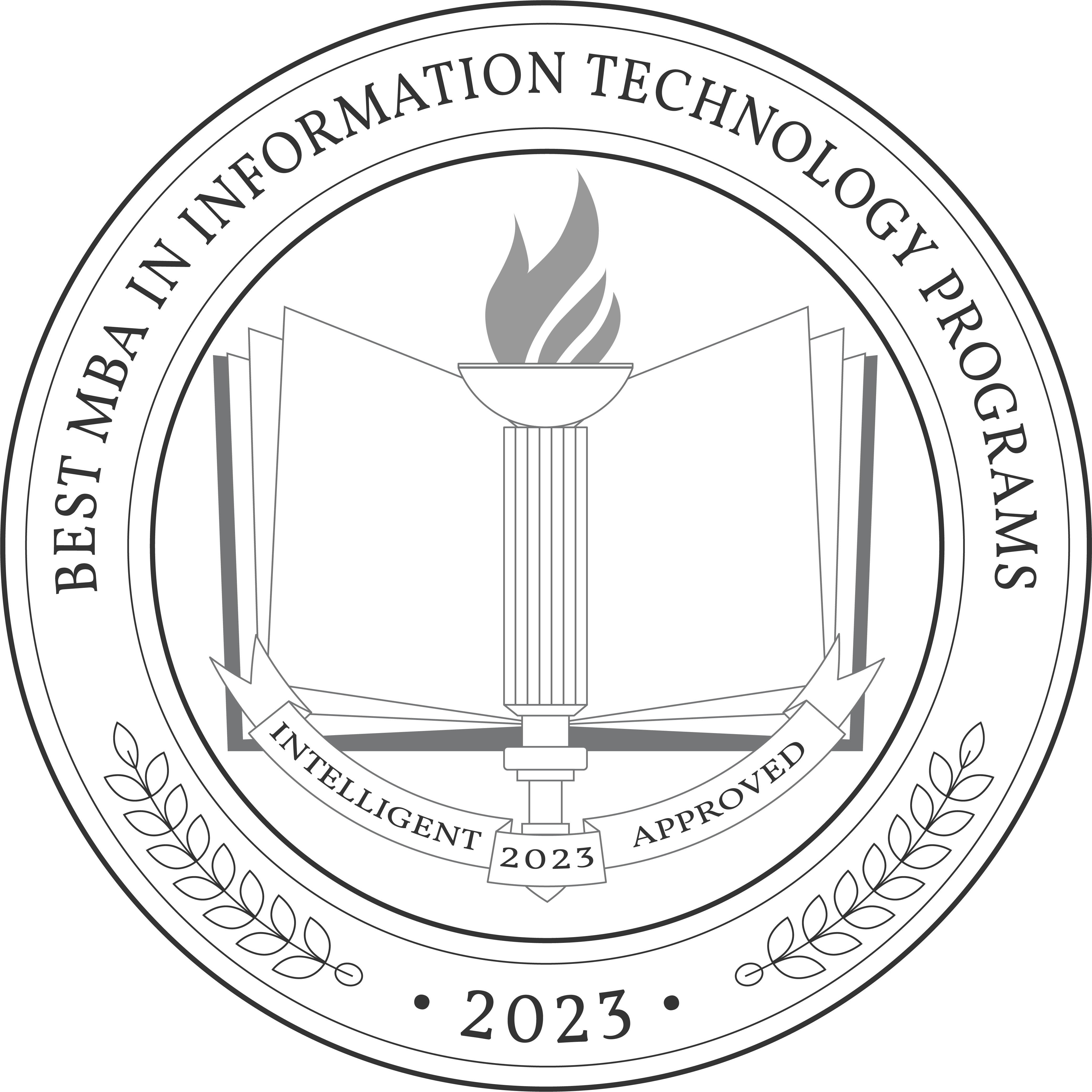Why This Matters
-
COMPUTER AND INFORMATION TECHNOLOGY JOBS ARE GROWING 11%
Computer and information technology jobs are expected to grow by 11 percent between 2019 and 2029. This growth should add over a half-million new jobs in the field by 2029.
-
48,100 MORE INFORMATION SYSTEMS MANAGERS ARE NEEDED
More specifically, computer and information systems manager positions are expected to increase by 48,100 through 2029. An MBA will help you prepare for management positions like these.
-
EARN $58,000 MORE PER YEAR WITH A MASTER’S DEGREE
The median annual salary for computer and information systems managers is $146,360. In comparison, the median salary across all computer and IT jobs is $88,240. Many of those require only a bachelor’s.
Our Research
We reviewed numerous MBA in Information Technology degrees, including online, traditional, and hybrid options. Online programs sometimes still require a brief in-person component.
All listed programs have regional accreditation, and most also have accreditation through a programmatic accrediting body. The Accreditation Council for Business Schools and Programs (ACBSP), Association to Advance Collegiate Schools of Business (AACSB), and International Accreditation Council for Business Education (IACBE) are the main bodies that accredit MBA programs.
We evaluated each program on the basis of flexibility, faculty, course strength, cost, and reputation. Then we calculated the Intelligent Score for each program on a scale from 0 to 100. For a more extensive explanation, check out Our Ranking Methodology.
- 52 hours to write this article
- 210 universities and colleges we assessed
- 351 education programs we compared
The Top 50 MBA in Information Technology Degree Programs

Discover More Options
What You Should Know About This Degree
Individuals who want to advance within information technology may have multiple ways to do so. Experience and on-the-job training are sufficient in some cases, while degrees are needed in others. A master’s degree in computer science or information technology will provide the technical knowledge required for advancement. An MBA in Information Technology combines the technical knowledge with business courses, and it’s primarily used to move into management roles.
The ability to manage IT personnel and a department requires more than mere technical knowledge and business skills. You must also possess strong organizational, communication, and problem-solving skills. Consider your aptitudes before pursuing this career path in IT.
Certification isn’t required in this field, but it can make you a much more competitive player in the job market. Some programs provide specialized certifications within their curricula. If a program doesn’t incorporate certifications into its curriculum, you might want to consider getting certified after graduation.
Online programs sometimes have in-person components, such as for orientations, seminars, or internships. Make sure these requirements will fit in your schedule before you apply to a program.
What’s Next?
Consider these questions as you research MBA in Information Technology programs:
- What tests are required for this online degree? Most MBA degrees require applicants to submit GRE or GMAT scores during the application process. A few programs might waive this requirement for applicants who have certain undergraduate GPAs or professional experience. Find out if exam scores are required, and make arrangements to take the appropriate exam if necessary.
- How long does it take to complete this online degree? These programs tend to be between 30 and 36 credits, although some have 50-plus credit hours. A 36-credit program normally takes two years to complete, while a 50-credit program requires three years.
When you identify a program of interest, find out the required application materials and deadlines. You can get these details on the program’s website or by contacting the admissions department.
Also consider how you’ll pay for a degree program. Speak with programs about scholarships, grants, and other financial aid, and check with your employer to see if you qualify for tuition reimbursement.